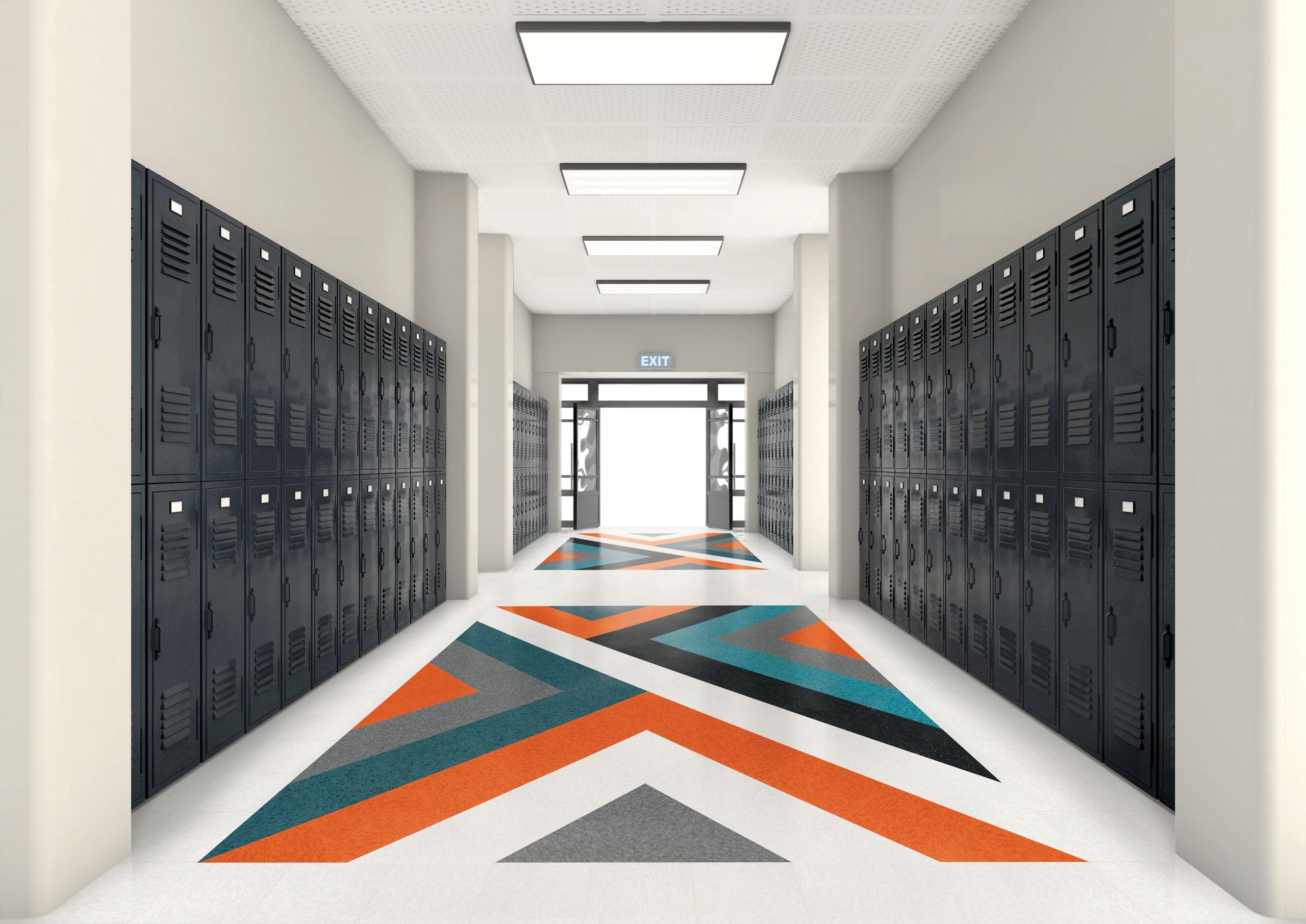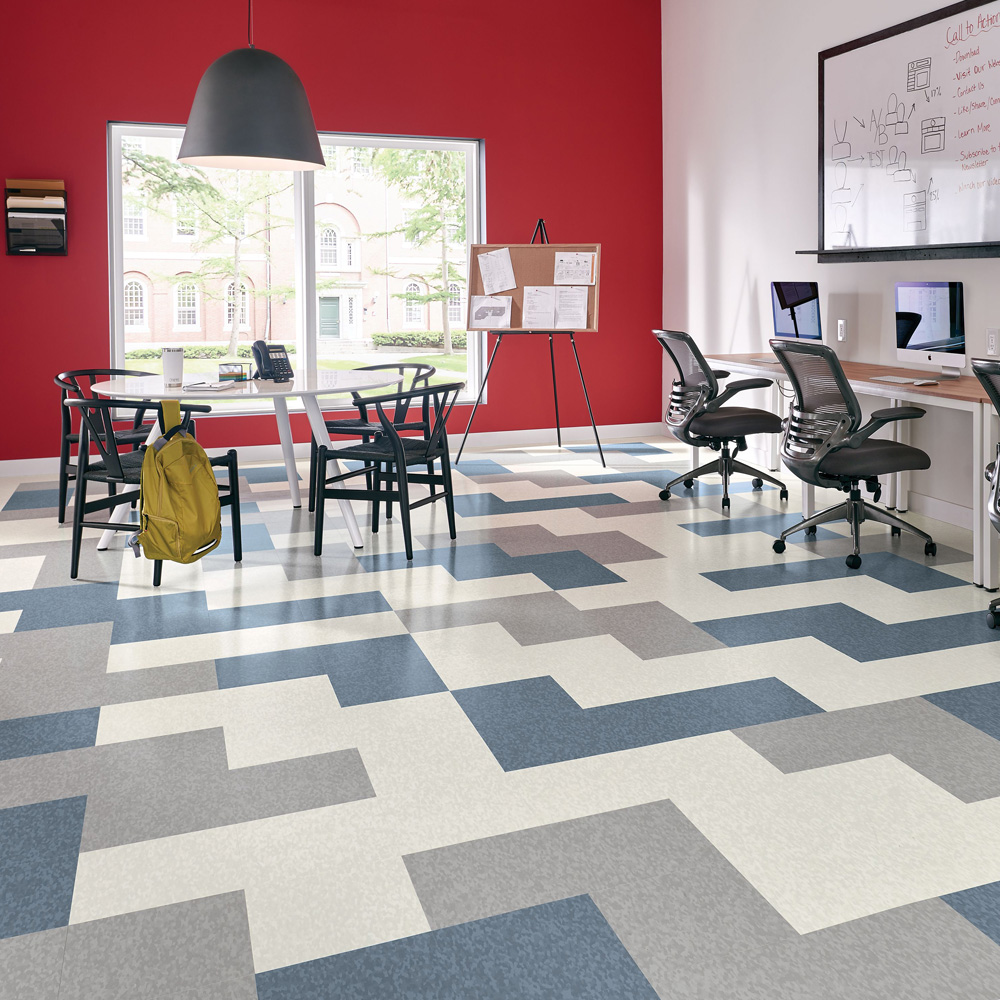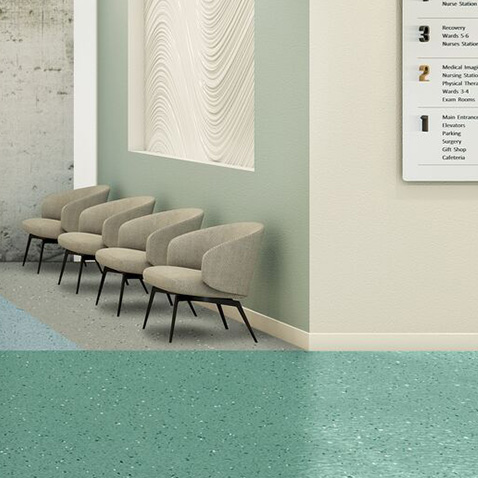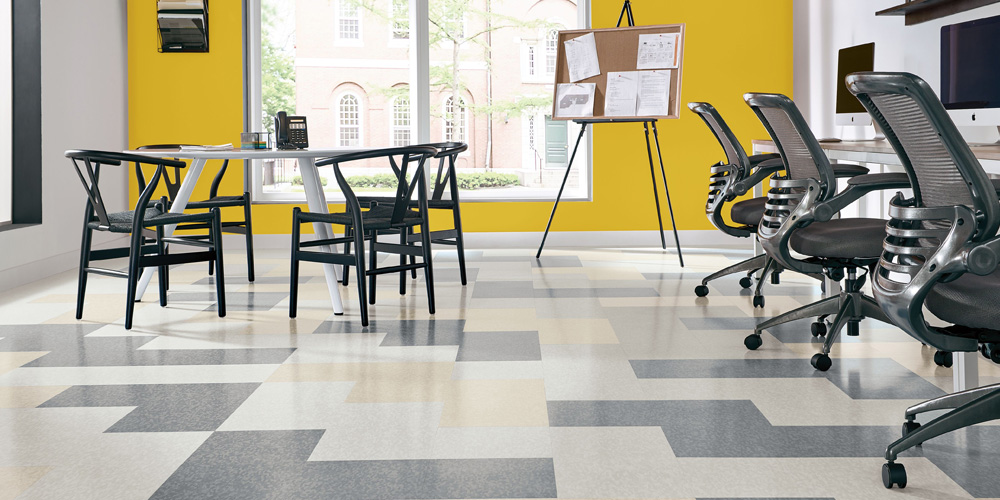About Commercial Flooring
Advantages that cater to the specific needs of businesses and organizations

Multitude of Advantages
Engineered to withstand heavy foot traffic and constant use, commercial flooring proves to be a long-lasting and cost-effective choice.
Safety Features
Safety is another crucial factor as it often comes equipped with slip-resistant surfaces, thereby reducing the risk of accidents and injuries in high-traffic areas.
Wide Array of Designs
Beyond functionality, commercial flooring offers a wide array of designs, colors, and textures, enabling businesses to create a professional and visually appealing environment that aligns with their brand identity.

Ease of maintenance ensures that businesses save both time and money on upkeep. For businesses where hygiene is paramount, certain commercial flooring options feature antimicrobial properties or seamless surfaces, contributing to a cleaner and more hygienic space.
Ease of Maintenance






Commercial Flooring FAQ's
What are the best flooring options for high-traffic commercial areas?
In high-traffic areas, durable flooring options like vinyl, laminate, ceramic tile, and commercial-grade carpet are often recommended. Each has its advantages, so the choice depends on your specific needs and budget.
How do I maintain and clean commercial flooring to ensure longevity?
Proper maintenance is crucial. Regular cleaning and maintenance routines should be established based on the flooring type. For example, hardwood may require periodic refinishing, while carpeting needs vacuuming and occasional deep cleaning.
Are there eco-friendly and sustainable flooring options for commercial spaces?
Yes, there are sustainable options available. Materials like bamboo, cork, reclaimed wood, and recycled content carpet are eco-friendly choices. Additionally, some brands offer low VOC (volatile organic compounds) options for improved indoor air quality.
What factors should I consider when choosing flooring for a specific type of commercial space, such as a restaurant or office?
The choice of flooring should consider factors like the type of business, foot traffic, design aesthetics, and maintenance requirements. For example, a restaurant might prefer easy-to-clean flooring, while an office may prioritize aesthetics and comfort.
How can I ensure compliance with safety and accessibility regulations in commercial flooring?
To ensure compliance, you should choose flooring materials and installation methods that meet local building codes and ADA (Americans with Disabilities Act) requirements. This includes considerations for slip resistance, transitions, and appropriate signage where needed.